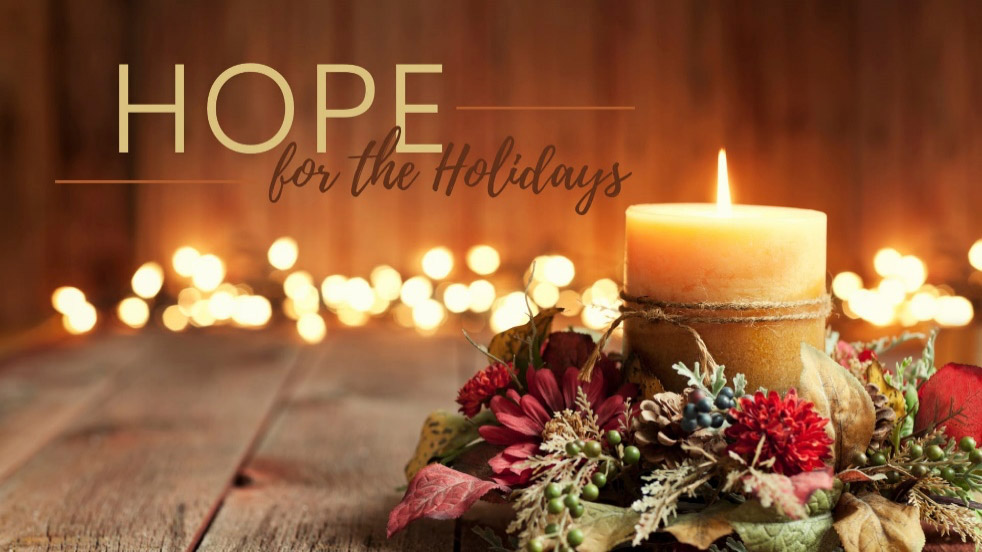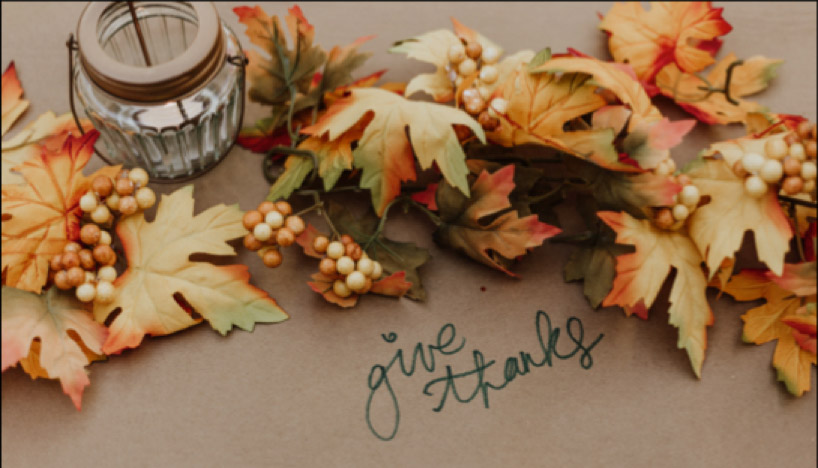 May is Mental Health Awareness Month and the National Alliance of Mental Illness (NAMI) has adopted the theme of “You Are Not Alone” to continue amplifying the message and overcome the stigma of mental illness. I would like to use this time and space to focus on the healing value of connecting in safe ways, prioritizing mental health and acknowledging that it’s okay to not be okay! Allowing this opportunity to discuss the prevalence, need and importance of mental health, we can realize a shared vision where anyone affected by mental illness can get the appropriate support and quality of care to live healthy, fulfilling lives — a place where no one feels alone in their struggle.
May is Mental Health Awareness Month and the National Alliance of Mental Illness (NAMI) has adopted the theme of “You Are Not Alone” to continue amplifying the message and overcome the stigma of mental illness. I would like to use this time and space to focus on the healing value of connecting in safe ways, prioritizing mental health and acknowledging that it’s okay to not be okay! Allowing this opportunity to discuss the prevalence, need and importance of mental health, we can realize a shared vision where anyone affected by mental illness can get the appropriate support and quality of care to live healthy, fulfilling lives — a place where no one feels alone in their struggle.
Let’s talk facts! Millions of people are affected by mental illness each year. Across the country, many people just like you and me work, perform, create, compete, laugh, love and inspire every day. Who are these individuals? You may be surprised to learn the following statistics which show you or someone you love, are affected by or struggle with mental illness.
- 1 in 5 US adults will experience mental illness; 19% of these adults will struggle with an anxiety disorder
- 1 in every 20 adults is living with a serious mental health condition such as schizophrenia, bipolar disorder or long-term recurring major depression
- 50% of all lifetime mental illness begins by age 14; 75% by age 24
- 17% of youth (6-17 yrs) will experience a mental health disorder
Diagnosing mental illness isn’t a straightforward science. We can’t test for it the same way we can test blood sugar levels for diabetes. Each condition has its own set of unique symptoms, though symptoms often overlap. Common signs and/or symptoms can include:
- Feeling very sad or withdrawn for more than two weeks
- Trying to harm or end one’s life or making plans to do so
- Severe, out-of-control, risk-taking behavior that causes harm to self or others
- Sudden overwhelming fear for no reason, sometimes with a racing heart, physical discomfort or difficulty breathing
- Significant weight loss or gain
- Seeing, hearing or believing things that aren’t real
- Excessive use of alcohol or drugs
- Drastic changes in mood, behavior, personality or sleeping habits
- Extreme difficulty concentrating or staying still
- Intense worries or fears that get in the way of daily activities
If you notice any of these symptoms, it’s important to ask questions and try to understand how daily life is impacted as a result. At Cornerstone Centers for Wellbeing, we can help answer these questions and work with you to set a course of treatment that works for you!
If you or someone you know is struggling, you are not alone. There are many supports, services and treatment options that may help. A change in behavior or mood may be the early warning signs of a mental health condition and should never be ignored.
As with other serious illnesses, mental illness is not your fault or that of the people around you, but widespread misunderstandings about mental illness remain. Many people don’t seek treatment or remain unaware that their symptoms could be connected to a mental health condition. People may expect a person with serious mental illness to look visibly different from others, and they may tell someone who doesn’t “look ill” to “get over it” through willpower. These misperceptions add to the challenges of living with a mental health condition.
Every year people overcome the challenges of mental illness to do the things they enjoy. Mental illness can slow us down, but we don’t need to let it stop us! Let us come along side your healing journey to mental health, because you are not alone!
“Your visions will become clear only when you can look into your own heart. Who looks outside, dreams; who looks inside, awakes.” Carl Jung
Be and remain well,
Deidre McLeod, MS LMHC
 Spring is said to be the time of year for ‘out with the old and in with the new’. Anyone else with me in feeling more than ready for that fresh start and new beginning we were all hoping for at the New Year? We have certainly had a ‘breath of fresh air’ with our weather recently and hopefully you have been able to open up some windows and allow some of that into your living space! Although we are experiencing the Spring weather (and pollen!!) we may still feel as if we have a little way to go to really enjoy the warmth and light that Spring brings. Experiencing the refreshment in the weather is only the external knowledge of this season, but what about our internal understanding of what Spring can represent to us individually? The symbolism of rebirth and new life that is synonymous with the beginning of Spring can help us think about what we can do to renew ourselves and better balance our lives. Take time to assess where you are in your day-to-day routines and mindsets and decide what’s working and what’s not. Once you create this awareness, you can replace the routines and habits that no longer serve you with ones that support a refreshed version of yourself. Let go of old mindsets and make room for new ones that will support positive changes in your life. What better time than Spring to re-group, re-prioritize, and even re-invent ourselves and the lives we find ourselves living?! Here are some Spring “rituals” to help you get started.
Spring is said to be the time of year for ‘out with the old and in with the new’. Anyone else with me in feeling more than ready for that fresh start and new beginning we were all hoping for at the New Year? We have certainly had a ‘breath of fresh air’ with our weather recently and hopefully you have been able to open up some windows and allow some of that into your living space! Although we are experiencing the Spring weather (and pollen!!) we may still feel as if we have a little way to go to really enjoy the warmth and light that Spring brings. Experiencing the refreshment in the weather is only the external knowledge of this season, but what about our internal understanding of what Spring can represent to us individually? The symbolism of rebirth and new life that is synonymous with the beginning of Spring can help us think about what we can do to renew ourselves and better balance our lives. Take time to assess where you are in your day-to-day routines and mindsets and decide what’s working and what’s not. Once you create this awareness, you can replace the routines and habits that no longer serve you with ones that support a refreshed version of yourself. Let go of old mindsets and make room for new ones that will support positive changes in your life. What better time than Spring to re-group, re-prioritize, and even re-invent ourselves and the lives we find ourselves living?! Here are some Spring “rituals” to help you get started. What is gratitude? According to the Oxford Dictionary, it is the quality of being thankful; readiness to show appreciation for and to return kindness. Gratitude is a way to recognize the good in our lives instead of focusing on the negative. Why should we be thankful? What are we thankful for? How can we be thankful during these trying times? At a time such as this we are very aware of all the stressors and challenges and it is sometimes difficult to see the positives through the chaos.
What is gratitude? According to the Oxford Dictionary, it is the quality of being thankful; readiness to show appreciation for and to return kindness. Gratitude is a way to recognize the good in our lives instead of focusing on the negative. Why should we be thankful? What are we thankful for? How can we be thankful during these trying times? At a time such as this we are very aware of all the stressors and challenges and it is sometimes difficult to see the positives through the chaos.

